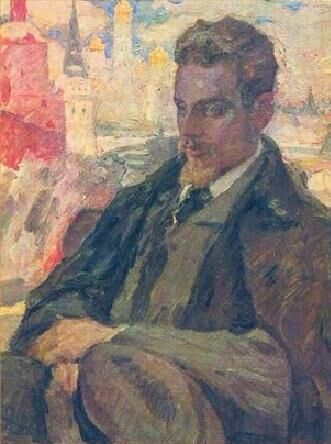THE STAGE 32 LOGLINES
Post your loglines. Get and give feedback.

LETTERS
By K. Legason
An intense 20th century poet writes about love in a time of war and desolation.
SYNOPSIS:
A three-part miniseries about the life of Rainer Maria Rilke (born in Bohemia, 1875) that is also a cinematic celebration of handwriting and penmanship.
Episode 1:
The episode begins with a cold open of Rilke’s last painful hours before his death.
1897 in Munich, Rilke meets and falls in love with a woman of letters, Lou Andreas-Salomé, through their mutual acquaintance Jacob Wassermann. She goes with him to visit the novelist Leo Tolstoy in Moscow along with her husband Friedrich Andreas. On his next journey to Russia, she accompanies him to meet the poet and novelist Boris Pasternak and another poet Spiridon Drozhzhin in Saint Petersburg.
In 1900, Rilke stayed at the artists' colony at Worpswede where he got to know Paula Becker, a painter, and her friend Clara Westhoff, a sculptor.
Clara became his lover, and he marries her the next year. She gives birth to their daughter, Ruth.
Soon, Rilke suffers depression. He leaves home to go to Paris and work for the inspirational sculptor Auguste Rodin. Shortly after, Clara leaves Ruth with her parents and joins him in Paris.
Episode 2:
The episode begins with a cold open of Rilke’s trauma in military school.
In 1902, Rilke starts corresponding with Franz Xaver Kappus, an officer cadet at the Theresian Military Academy in Austria, seeking his advice in deciding between a literary career or a career as an officer in the Austro-Hungarian Army.
Rilke's poems that constitute The Book of Hours were published in 1905. The next year, Rilke’s work begins to gain recognition and his relationship with Rodin breaks down. He leaves to travel throughout Europe and starts writing his novel, The Notebooks of Malte Laurids Brigge.
The following year, he returns to Paris and discovers Cezzane. He also had a brief romantic relationship with Mimi Romanelli, the youngest sister of Italian art dealer Pietro Romanelli, known for her beauty and musical talent. Rilke stayed in her family’s small hotel in Venice. Later that year, his friend Paula Becker dies in childbirth, and Clara asks for a divorce.
He sends his last correspondence to Franz in 1908. They never met in person.
Episode 3:
The episode begins with a cold open of Rilke’s mother dressing him like a girl.
After Clara left, Rilke throws himself into passionate but short-lived affairs. He blames his mother for his failed relationships and considers seeing Freud for analysis. Lou advises him against it, and he soon changes his mind as he begins to write again. He starts writing the Duino Elegies while a guest of Princess Marie von Thurn und Taxis at Duino Castle in 1911.
During the winter of 1912/13, he visits Spain to see El Greco's paintings. (Rilke admired his work since 1908.) Then he traveled to Germany, and the outbreak of World War prevented him from returning to Paris, where his property was confiscated and auctioned. From 1914 to 1916, he had a turbulent affair with the painter Lou Albert-Lasard.
Rilke supported the Russian Revolution in 1917 as well as the Bavarian Soviet Republic in 1919. He became friends with Ernst Toller and mourned the deaths of Rosa Luxemburg, Kurt Eisner, and Karl Liebknecht. In 1919, he meets the artist Baladine Klossowska, his last lover during the remaining years of his life.
In 1921, he moved to the Château de Muzot, which was bought and renovated by his patron Werner Reinhart. He began to write a sequence of poems, which he called 'Sonnets to Orpheus'. During this time, Reinhart introduced Rilke to his protégée, the Australian violinist Alma Moodie.
From 1923 on, he increasingly struggled with health problems that necessitated many long stays at a sanatorium in Switzerland. In 1924, Erika Mitterer, a Viennese author began writing poems to Rilke, who wrote back with approximately 50 poems of his own and called her verse a Herzlandschaft (landscape of the heart). She visited him before he died from leukemia in 1926.
The series ends with Rilke’s memories of his mother taking care of him when he was ill.


Rated this logline
1 person likes this
I love the concept! Very interesting synopsis, in particular the first episode which revolves around the great Russian authors like Tolstoy and Pasternak. I think your logline could use a little more polishing, especially in regard to conflict/inciting incident, character trait/weakness and overall premise, but you definitely have a good start and a clear direction. Awesome work K!
1 person likes this
Thanks for the inspiring comment, Frank Baruch! Yeah, it serves to guide my drafting for now. Will see about polishing that later on. :)
Rated this logline
Rated this logline
Rated this logline